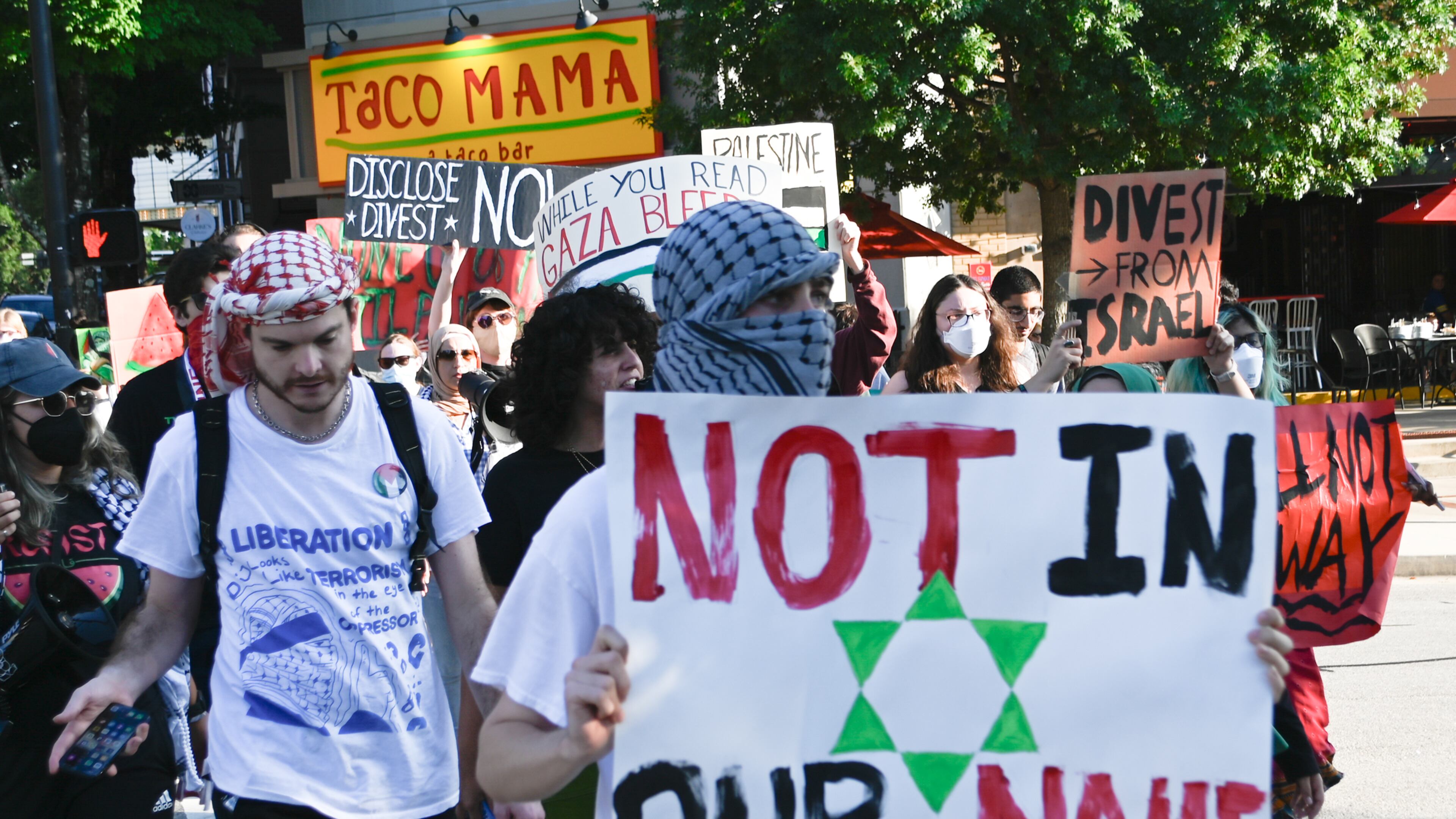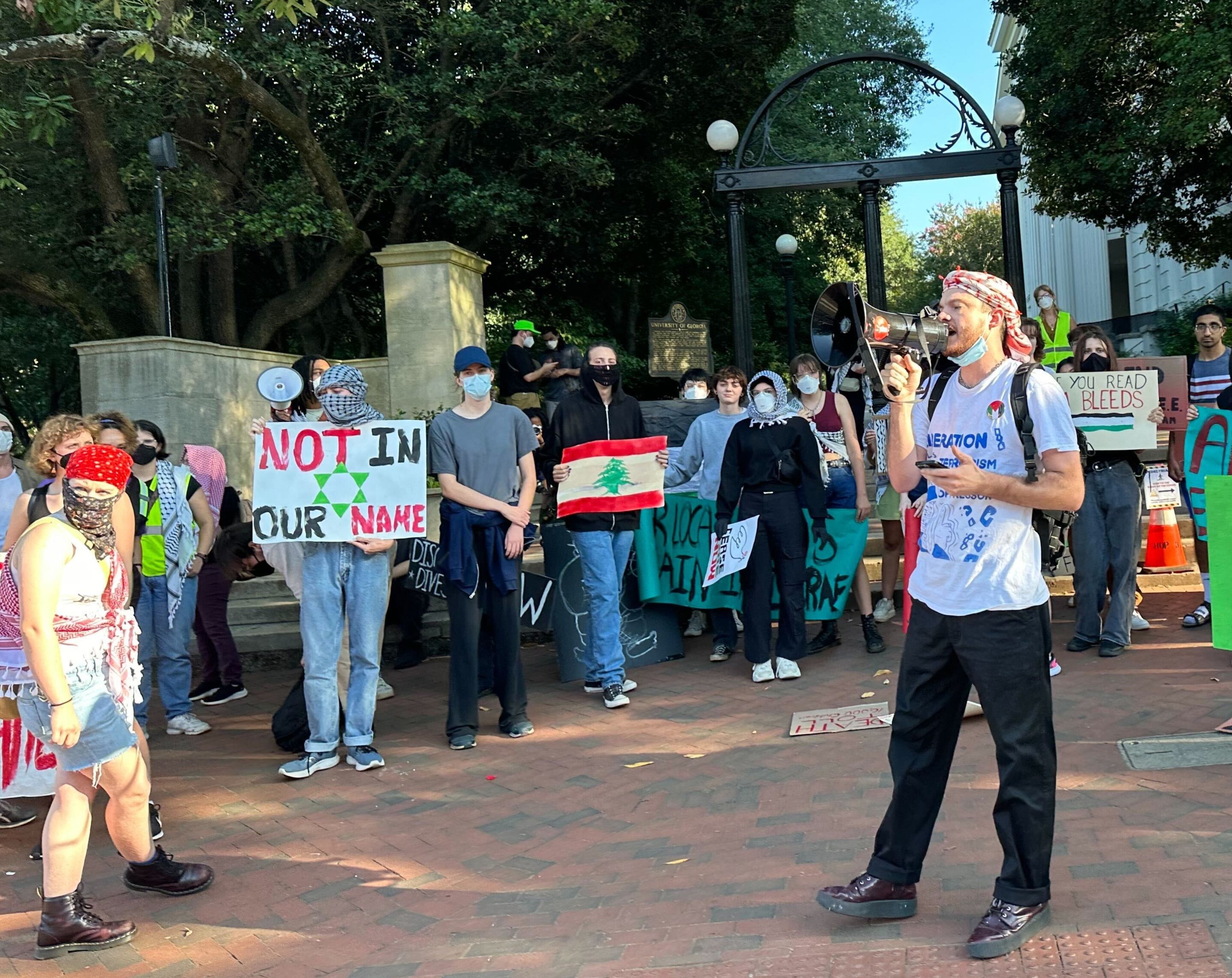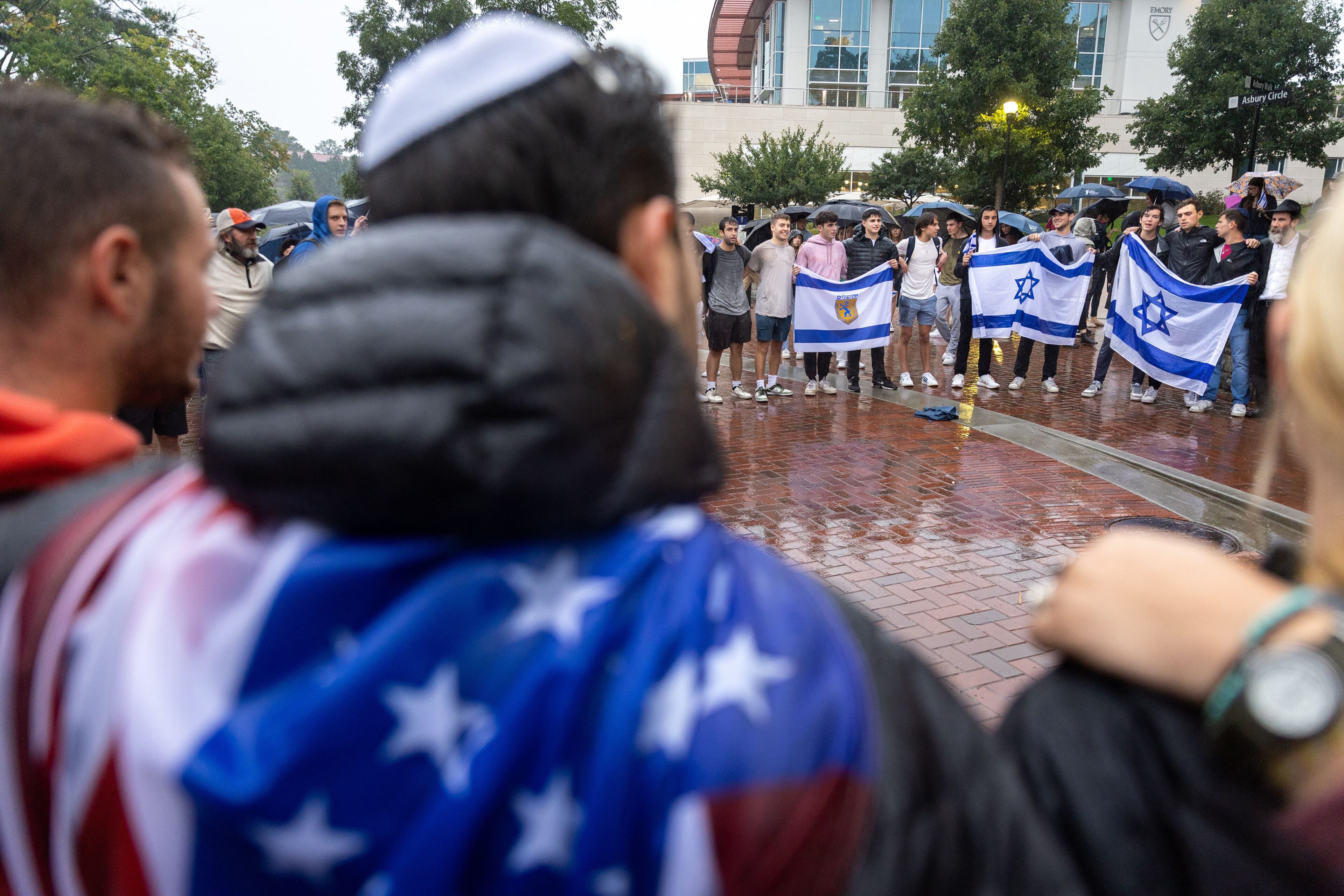Georgia colleges prep for protests as school resumes and war continues

College students are returning to campuses in Georgia, and so are their passionate protests around the conflict in Gaza.
Students at Georgia Tech held a memorial for Palestinian casualties shortly after coming back to campus earlier this month. University of Georgia students marched from their campus to Athens City Hall last week.
“I’m sure that there are going to be protests everywhere,” said Zeena Mohamed, 22, who helped advertise the UGA march.
With a looming presidential election, college leaders are launching free speech initiatives and tightening rules around student demonstrations.
In the weeks before graduation, pro-Palestinian protesters set up an encampment on the private grounds of Emory University, leading to 23 arrests, including 15 students and even faculty. President Gregory Fenves was criticized for what some said was a heavy-handed response, and he was the target of several no-confidence resolutions approved by undergraduate students and faculty members.
The Council on American-Islamic Relations then placed Emory among three universities “of particular concern” nationally. Emory hired an attorney to review its own actions.

On Tuesday, the evening before classes began, Emory announced an update to its open expression policy. It now prohibits overnight outdoor camping and encampments, and bars building occupations. The new language also bans protests between midnight and 7 a.m.
The school said the revision “codifies what has been a long-standing practice” to make “reasonable restrictions” on the time, place and manner of protests.
George Shepherd, president of the University Senate, told Fenves in a letter he “was disappointed” by the lack of consultation with his group, since decision-making through shared governance is a normal practice. Without that “vital step,” he wrote, “the new policies’ quality and legitimacy may therefore suffer.”
Noëlle McAfee, an Emory professor who was arrested during the April campus protest and whose court case is ongoing, said she’s concerned about how the new rules will be defined.
“What is a protest? What if people are talking loudly together, arguing about politics at one in the morning on the quad? We don’t have a curfew,” said McAfee, who is also president-elect of the University Senate. “These are just poorly thought through policies.”
The policies, she added, are “aimed at restricting speech.”
Chancellor Sonny Perdue has praised how his University System of Georgia’s 26 public schools responded to protests last spring. In a Monday statement, he emphasized civil discourse.
“Our institutions will do everything they can to support the right to peaceably assemble and will not tolerate violence or disruptions that hinder the safety and security of our faculty, staff and students,” he said.

Georgia Tech started fall classes Aug. 19, and the next day students were staking Palestinian flags into the campus green for a memorial they’d planned over the summer.
“It’s a genocide,” Renee Alnoubani, president of the campus Muslim Students Association, said into the microphone at lunch time, as about 50 students gathered to watch.
More than 40 campus organizations participated, said Saima Firoj, one of the organizers. They are calling for “divestment” from financial support for Israel’s military.
“This movement is not going anywhere,” Firoj said. “I do expect more people to keep showing up.”
This fall, Georgia Tech will launch a campaign to deepen understanding of free speech while emphasizing the need “to communicate across identity and ideological differences responsibly,” wrote Luoluo Hong, vice president for student engagement and well-being. Discussions should be had “with care and compassion for each other,” her welcome message to students said.
The effort includes a series of videos about freedom of expression and hate speech. Hong urged students to learn Georgia Tech’s protest rules, which bar demonstrators from interfering with the flow of vehicle or pedestrian traffic and prohibit camping or temporary shelters without prior approval.

Just days before the fall semester began at Georgia State University, President M. Brian Blake said he didn’t know if protests would be as big as last school year.
Georgia State has designated demonstration areas at its Perimeter and Atlanta campuses, but some of the largest open spaces at the latter are city-owned parks the university doesn’t control.
He added that protests at his school had been, in “about every case” planned and “very respectful.”
Observers off campus expect more dissension.
Azka Mahmood, executive director of the Georgia chapter of the Council on American-Islamic Relations, worries that Americans are more impatient with the protests than with the mounting death toll in Gaza.
“Young people are still feeling very hopeless and helpless and angered about continuing involvement of the U.S. in what is happening in Palestine,” Mahmood said. “We do anticipate students to express themselves in some way.”
Rabbi Larry Sernovitz, CEO of Hillels of Georgia, is calling on campuses to enforce rules of conduct as the Oct. 7 anniversary of the Hamas attack on Israel approaches.

“We want to make sure that our students are safe. That’s first and foremost on our minds,” Sernovitz said. “We know that things are going to happen. It’s already ticking up.”
Mohamed, the UGA student who promoted last week’s march, was suspended and barred from campus after protesting there last spring. She sees her punishment as an attempt to intimidate protesters and discourage more from participating.
“Even though we’re facing all of these suppression tactics,” she said, “we’re still going to maintain the same voice and the same values that we upheld before the suspensions.”
Staff writer Fletcher Page contributed to this article.




